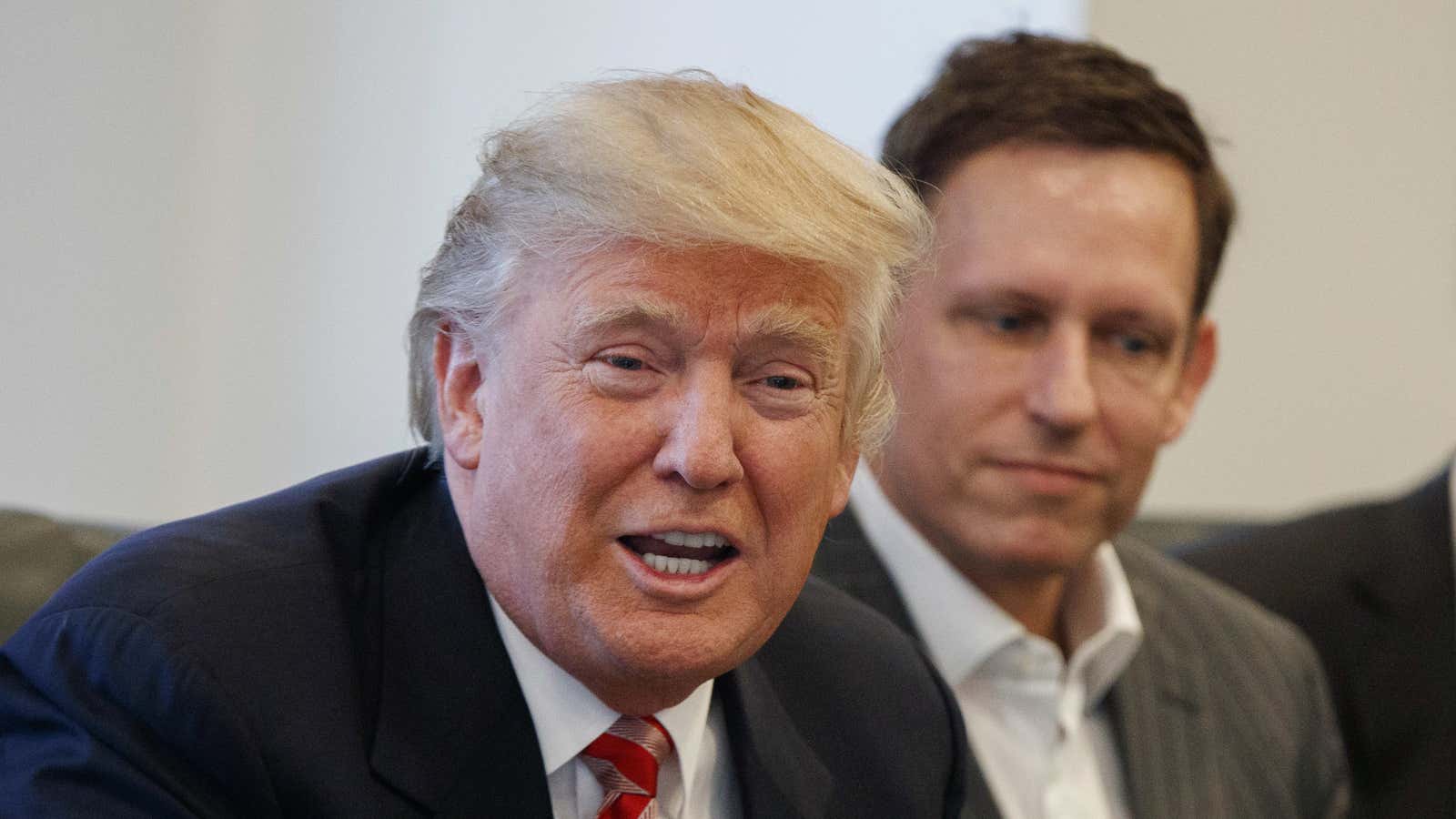There’s plenty of evidence from US president Donald Trump’s first 100 days that he’s willing to use the White House to help enrich family and friends. That includes blasting Nordstrom for dropping his daughter’s clothing line, booking official meetings at his hotels, and proposing a tax break (paywall) that benefits real estate developers.
Fears that Trump would turn the US government into a Putin-style kleptocracy may be overblown, however, as demonstrated by the Department of Labor’s $1.7 million settlement with Palantir Technologies over claims it discriminated in hiring.
Palantir, a Silicon Valley data analysis firm, was co-founded by Peter Thiel, a Trump supporter who has advised the president on science and technology issues. The company is a significant military contractor, and was sued in September by the Office of Federal Contract Compliance Programs—a Labor Department agency that polices the hiring and pay practices of government vendors—for discriminating against Asian Americans.
As detailed in Quartz last month, there were good reasons to suspect the administration would drop the suit against Palantir. High among them was Trump’s relationship with Thiel, but he had other reasons for undermining the OFCCP, which became an aggressive civil rights watchdog under former president Barack Obama. Trump campaigned on his disdain for government regulation, and has rolled back rules aimed at protecting the environment, workers, and small investors.
But the Palantir settlement, announced April 25, was in line with OFCCP settlements reached under Obama with employers like Tyson Foods and Hewlett-Packard. The company is required to pay back wages and extend offers to eight Asian job applicants.
A cynic could argue the sum wasn’t big enough for Thiel to trouble Trump about—Palantir reportedly recorded $420 million in revenue in 2015—or that Trump simply hasn’t turned his attention to the office. His nominee for secretary of labor, Alexander Acosta, has yet to receive a senate vote, and the OFCCP is still run by a holdover from the Obama administration.
But an optimist might view the settlement as a proof of the professionalism of the civil servants, who have shown themselves willing to pursue a case against a company founded by a presidential crony, as well as a testament to the ability of government agencies to resist political pressure.
